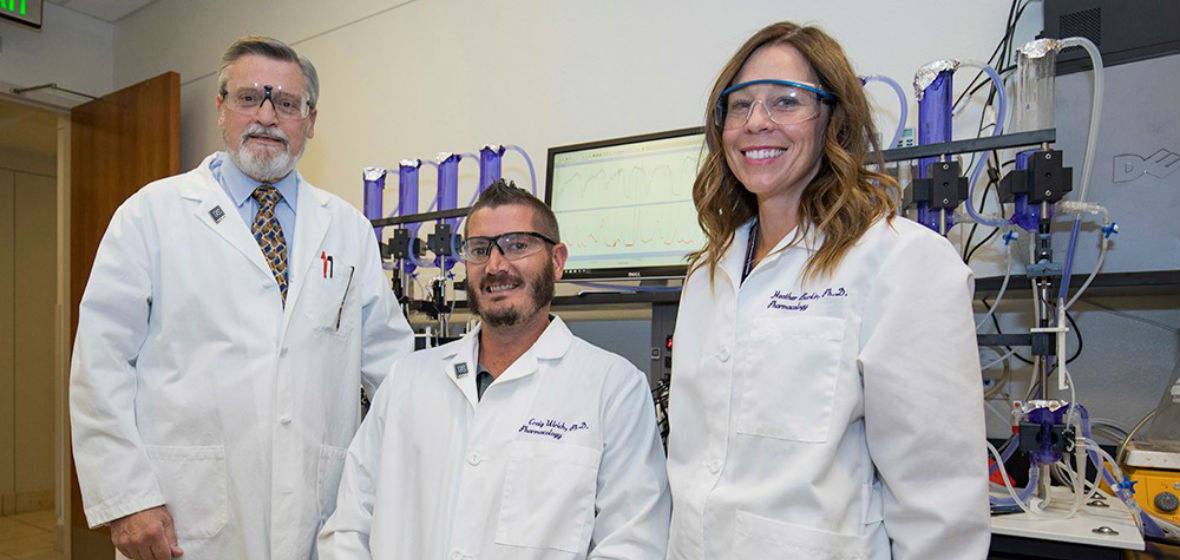Approximately 15 million preterm births occur each year worldwide. In Nevada, one in 10 babies is born premature. A research team at the University of Nevada, Reno School of Medicine (UNR Med), under the direction of Iain Buxton, Pharm.D., foundation professor of pharmacology, is working to develop new approaches to prevent preterm labor.
Dr. Buxton and his research team at UNR Med recently received significant support with a $2 million grant from the Eunice Kennedy Shriver National Institute of Child Health and Human Development. The funding will support discovery efforts to develop a drug that could prevent a woman's labor without having dangerous effects on a developing fetus. The goal is, "a very tall order" says Buxton, whose recent findings were published in Nature Scientific Reports.
Preterm birth, the delivery of a fetus prior to 37 weeks gestation, is an all too common outcome of an otherwise normal pregnancy. The earlier the fetus is delivered, the more dangerous the consequences for the baby. In the United States, 20,000 babies die each year due to premature birth. Unlike miscarriages, which are the loss of a pregnancy in the first trimester and often the result of chromosomal anomaly with no chance of survival, preterm birth can be the result of spontaneous labor. A consequence with no effective treatment.
"Preemies that survive preterm birth are at risk for cerebral palsy, learning disabilities, vision disturbance, hearing loss, respiratory and digestive problems," said Buxton. "Different medical, environmental, and genetic risk factors are all causes of preterm birth, yet there are no drugs to reliably halt spontaneous preterm labor and none are FDA approved for this purpose." While the problem can affect mothers from all backgrounds and ethnicities, African American mothers are disproportionally affected.
Buxton and his research team are studying the uterine muscle of women and how it is regulated to stay relaxed for many months before responding to signals that initiate contraction. Their efforts are critical for developing new approaches to prevent preterm labor.
Together with his department colleagues Heather Burkin, Ph.D., assistant professor,
cellular and molecular pharmacology and physiology; Josh Baker, Ph.D., associate professor and interim chair, department of pharmacology and Craig Ulrich, Ph.D., department of pharmacology, in conjunction with UNR Med community hospital partner Renown Health and participating physicians and patients, Buxton hopes to have evidence for a new approach to treating women at high risk of preterm labor within the next five years. Their earlier research has also received funding from the National Institutes of Health, the March of Dimes and the Bill and Melinda Gates Foundation.
"We are extremely proud our UNR Med faculty like Dr. Buxton and his research team whose research is addressing real-world needs, and improving the quality of life for the people of Nevada, the nation and the world," said UNR Med Dean, Thomas L. Schwenk, M.D. "The national support and investment of this magnitude is further testament to the dedicated work they are doing to find new and effective approaches to preventing preterm labor and discovering innovative solutions to not only improve health care in northern Nevada, but impact global health overall."












